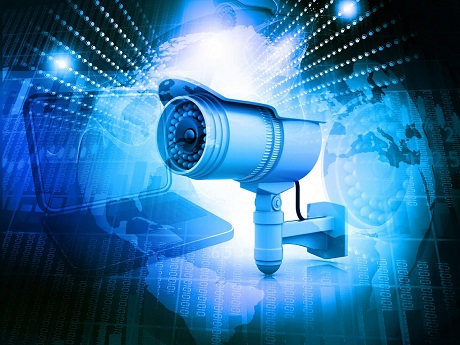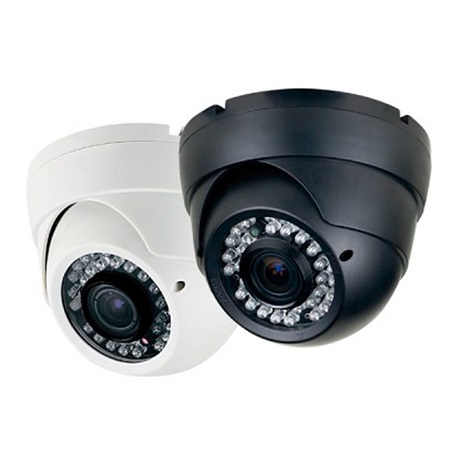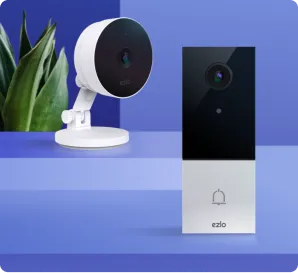A CCTV camera helps keep a watchful eye on your property. They are an essential component of a security system and help deter and detect crime. A digital CCTV camera can also record the activity and prove a crime is committed. So, choosing the right CCTV camera is vital but, how do you choose the right CCTV camera? Here’s our guide to choosing the right CCTV surveillance cameras for your home or business.
Digital Vs. Analog CCTV Camera

Advances in technology bring the aspect of digital surveillance in CCTV circles into the arena. Although there are more benefits to using digital video surveillance than analog solutions, there is still a place for the best analog CCTV cameras to monitor specific environments. However, the changeover is taking place in many areas, demanding new technology and innovation from CCTV manufacturers to help bridge the gap between analog and digital CCTV cameras.
Consequently, this shift can be confusing for users and owners of CCTV systems as it brings many questions about the benefits of digital CCTV cameras over analog ones.
Accessibility
An obvious advantage of a Digital CCTV Camera is the ease of access. You can get an app and access your footage anywhere from your phone.
Video and Image Quality
Digital CCTV cameras capture better video quality because of their high-quality sensors, which result in better image quality.
The picture quality is fundamental, and the digital CCTV technology ensures you get a better picture and identify people much easier.
Remote Monitoring
Digital CCTV cameras present many other benefits, such as night vision recording and remote monitoring wireless capability. Wireless CCTV camera systems are portable and can be used anywhere whenever required. With a computer, smartphone, and internet connection, you can view digital camera recordings from anywhere in the world.
On the other hand, analog CCTV cameras do not have these features, hence cannot provide remote monitoring.
Reliability
Analog CCTV cameras’ reliability is attributable to their long service and many years of existence.
Usage
Analog CCTV cameras thrive in areas where less security is needed, like parking lots, street lighting, etc. On the other hand, Digital CCTV cameras are paramount in high-security areas like banks, casinos, hospitals, etc.

Size and Cost
Analog CCTV cameras are less expensive and use less electricity than digital ones. However, they are bulky and demand more maintenance. On the other hand, digital CCTV cameras are much smaller but have multiple lenses that allow you to choose the area of focus. In addition, you can easily change the view with software or by remote control.
Recording
While Digital CCTV cameras record images and transfer signals over coax cables, analog CCTV cameras record images to videotape cassettes that can be played back later on a VCR or DVR. Network cameras (IP cameras) send images digitally over LAN using an ethernet cable. You can connect the IP cameras to a DVR recorder and the images are transmitted to a computer monitor via software.
Digital video recording systems are more reliable than analog, as they store all images in their memory even without a tape. All recorded data is stored on the DVR until downloaded and copied elsewhere for permanent storage.
With an analog CCTV camera system, recorded data is stored on tape until such a time it is copied offsite to the computer system’s hard drive for permanent storage. The disadvantage of the analog system is that you could permanently lose data.
Tape-based analog systems are more prone to errors than their digital counterparts. In addition, since tapes need to be changed regularly, they are prone to mechanical failure and loss of video evidence during tape replacement.
What to Consider When Selecting a Digital CCTV Camera
When planning for a digital surveillance CCTV system, consider the field of view, whether it is weatherproof and how one will use it regarding your capacity. In addition, if you consider live video streaming, you should factor in your internet speed and choose a robust transmission camera.
In addition, consider the main purpose of your digital security cameras whether you want to monitor your home or deter burglars. If you need surveillance systems for both purposes, ensure the cameras are capable. Further, consider storage capacity and vision focus.
Your Take
It is no surprise that digital CCTV cameras have become popular the above. Their widespread use is attributable to their contributions to surveillance needs. Digital CCTV systems have very high-resolution capabilities and can record a vast area.
In addition, digital surveillance cameras provide flexibility and depending on your preferences, you can use them both indoors and outdoors. Cost, image quality, and features like night vision and weather resistance are some considerations you may consider in your final decision to acquire CCTV.


















